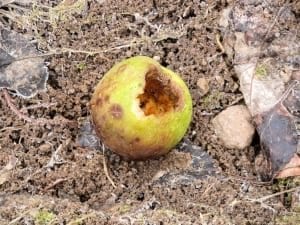According to the UN Food and Agriculture Organization (FAO) every year 1.3 billion tonnes of food is wasted. This is equivalent to the same amount of food produced in the whole of sub-Saharan Africa. At the same time, one in every seven people in the world go to bed hungry and more than 20 000 children under the age of five die daily from hunger. Hence the theme for this year’s World Environment Day celebrations is Think.Eat.Save, an anti-food waste and food loss campaign to encourage us all to reduce our foodprint.
“Making informed decisions include purposefully selecting foods that have less of an environmental impact, such as organic foods that do not use chemicals in their production process, or choosing to buy locally so that foods are not transported long distances, resulting in less carbon emissions, or lower food miles,” says Founder of Food & Trees for Africa (FTFA), Jeunesse Park. FTFA teaches schools and communities to grow their own nutritious, organic food using sustainable and environmentally conscious practices, through their EduPlant, Food Gardens for Africa and the Farmer Eco-Enterprise Development (FEED) Africa programmes. In all FTFAs work emphasis is placed on the Permaculture principle “produce no waste”, which looks at valuing and making use of available resources , so nothing goes to waste. This pertains to all waste, not just food waste.FTFA, in partnership with the United Nations Environmental Programme (UNEP), will be hosting an event at the Onverwacht Sustainable Farm in Cullinan, just outside of Pretoria, 5 June. The event will showcase how small scale farmers are incorporating the principles of “Think.Eat.Save” into their farming practices. Quinton Naidoo, FEED programme manager commented that “if a community small scale farmers can do it, why can’t commercial and large scale farmers?”
Onverwacht Sustainable Farm supplies major retailers in Johannesburg, as well as the Cullinan community, with organic and nutritious vegetables. The waste produced by the farm is recycled and composted to ensure that there is minimal waste. This farm illustrates what can be achieved through community upliftment (Think), organic and nutritious food (Eat) and recycling and composting waste (Save) that is reused on the farm. To join the World Environment Day action and learn about permaculture and organic farming, how to eat more consciously and save, contact info@trees.org.za, visit the website, www.trees.co.za and see www.facebook.com/FoodandTreesforAfrica.






